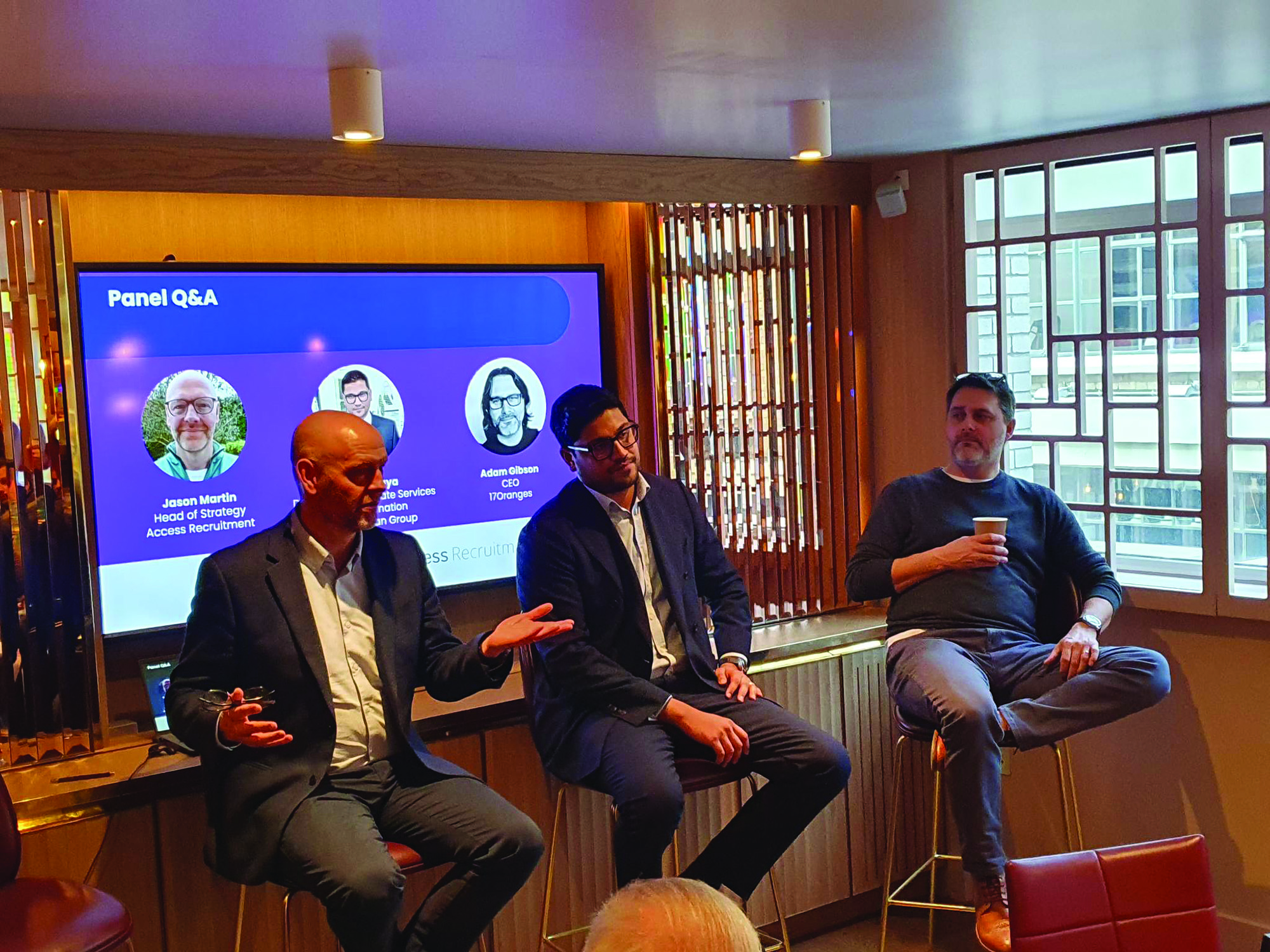The tech stack, and how it’s maximised, is an important differentiator for recruiters – for their clients, candidates, and their own consultants.
Employers are looking to their vendor partners for more help with workforce and demand planning, re-skilling and up-skilling, TA optimisation, employer brand/EVP and advisory services. Candidates expect a more joined up and personalised experience and consultants need integrated access to tech and data solutions to deliver a higher value service.
How can staffing and talent solutions providers optimise tech and talent to maximise opportunities around strategic solutions whilst improving integration, collaboration and productivity?
This was the theme of TALiNT Partners’ first tech leader Lunch & Learn on 9th February, hosted in partnership with Access Recruitment for CTOs and senior executives from our member network including the Page Group, Claremont Consulting, the MCG Group, Extrastaff, deverellsmith, Sanderson, Venn Group, Antal International and Now Careers.
Opening the event, TALiNT Partners’ MD Alex Evans shared insights from both the TIARA Recruitment and Talent Tech Star Awards.
“A good business case for your tech should have some good metrics to prove ROI and there are always areas of unexpected benefit or where you have been able to go beyond – whether it’s candidate engagement, contractor re-deployment or revenue per head”, said Jason Martin, Head of Strategy at Access Recruitment.
‘Innovation is one of the five lenses that TIARA judging is designed around, and for the majority of those shortlisted it is how they are using talent tech solutions to improve, innovate or differentiate,” he explained. “Increasingly, this is better use of data and talent intelligence to build candidate or contractor communities, support clients with advisory and workforce planning services, or to justify higher premiums.’
Technology has levelled the playing field, enabling more agile SMEs to compete more effectively with larger competitors – and helping big staffing and RPO firms to adapt more quickly to challenges.

Jason Martin, Head of Strategy at Access Recruitment, is a veteran TIARA judge and has observed some key trends and transformation drivers over the last five years.
‘We have seen a move from building bespoke tech stacks to dominate a niche area of recruitment to simplification and better use of more standardised, cloud-based platforms where third party providers manage the infrastructure,’ he explained. ‘This not only enables recruiters to focus on recruitment but means they can focus on some bespoke elements to differentiate – around candidate experience or building talent pools.’
Access client and TIARA Best Use of Tech winner the Danny Sullivan Group is an exemplary case in point, having demonstrated the success of a major transformation to enable faster growth, but how did Umer Goraya, who devised this project, build the business case?
‘It helped that I’m the FD,’ explained Umer, who has held similar roles at Serco and Capita. ‘We looked outside recruitment and legacy processes to understand what our clients really needed, what to transform, and where we would see the best return on investment.’
Judges praised the Danny Sullivan Group for the speed of its transformation as well as its impact on service and growth; so what were his biggest lessons? ‘Maybe 18 or 24 months would have been better than 12,’ he observed.
‘It helped to bring in industry agnostic tech talent who understood the vision and could help everyone else to see it. Not everyone will buy into it of course, for various reasons, and you can waste a lot of time and energy trying to win over the 5% who will always resist change. My lesson is to focus on the 95% who will make it happen and change behaviour.’
So what are the new drivers of transformation for DSG? ‘Once you have all of that data and visibility you can identify more specific areas of improvement around process automation, candidate experience, planning and advisory services to really differentiate,’ Umer added.
As ChatGPT and Open AI have become global obsessions, with commentators across all industries hailing it as a game-changer, how and when will it impact recruitment?
‘It’s too early for AI to have an impact in recruitment but automation is already transforming the sector in enabling more self-service elements for candidates and helping recruiters to progress from transactional to more advisory offerings,’ said Jason Martin.
“There is a great opportunity to have a pre-sales product manager to explain the tech benefits under-pinning their recruitment service.” Adam Gibson, CEO, 17 Oranges
What are the new drivers of digital transformation for recruiters and how can CTOs and CIOs build better tech stack business cases for their boards? This question was posed to Adam Gibson, the former CIO of Odgers Berndtson who now advises recruiters on tech strategy and what their tech stack should deliver before they buy it as CEO of 17 Oranges.
‘Increasing profitability is the business case, whether it’s making people more effective or enabling higher margin services,’ he explained. ‘A good CTO should be able to find the un- noticed orphan tools and projects that can deliver quick wins with early savings.’
The tech stack has become a differentiator for recruiters in their ability to deliver a wider range of services, from payroll solutions to skills mapping and upskilling, but it’s not always obvious to clients.
‘It can be very over-whelming and for it to really land it needs context around the problem it solves or what it can enable you to do,’ added Adam. ‘There is a great opportunity for recruiters to have a pre-sales product manager to explain the tech benefits under-pinning their recruitment service. It will help to win the client but also helps to build a more collaborative partnership at the start where the recruiter is recognised as an advisor, not just a gap filler’ With increasing interest in the staffing and talent solutions sector from private equity investors, who are bringing in senior tech talent from other industries, how will this shape the future of recruitment?
‘It’s good for the sector to have talent from other industries and new perspectives on how better use of tech and data can improve not only recruitment as a service but how recruiters are perceived,’ said Alex Evans. ‘But there have been some very costly mistakes made by CTOs coming into the sector who didn’t understand recruitment culture – so how can this be mitigated?’
‘Peer learning networks like this are a very good start,’ Adam observed. ‘Everyone in this room is leading digital transformation in some very large recruitment organisations but many have come from industries ranging from third sector to retail and financial services. It’s important for them to learn from recruitment leaders and for recruiters to understand what has had an impact in other sectors – because they’re competing for clients, candidates and recruitment talent from all industries.’
With Access Recruitment returning as headline partner of the TIARA Recruitment Awards for a tenth year, the last question went to Jason Martin – how will best use of tech help entrants to differentiate and win this year?
‘A good business case for your tech stack should have some good metrics to prove ROI and there are always areas of unexpected benefit or where you have been able to go beyond – whether its candidate engagement, contractor redeployment or revenue per head. It’s what you do with it that counts, and the winners are those investing in L&D or LMS to help their people make the most of it. It truly has levelled the playing field, and anyone can win.’
“We looked outside recruitment and legacy processes to understand what our clients really needed, what to transform and where we would see the best return on investment.” Umer Goraya, FD, Danny Sullivan Group










